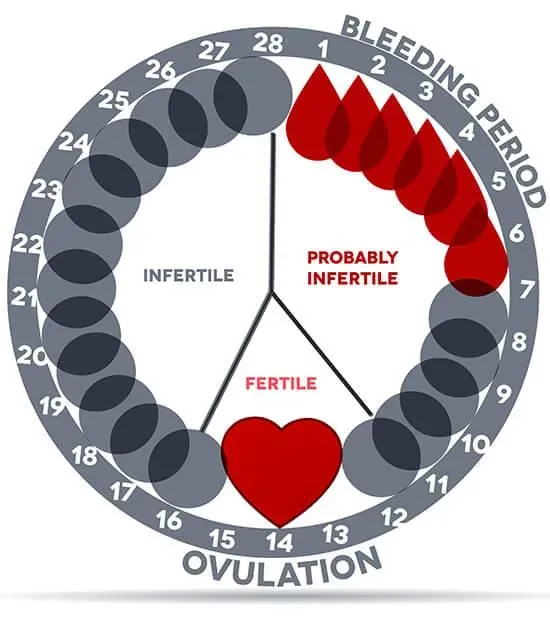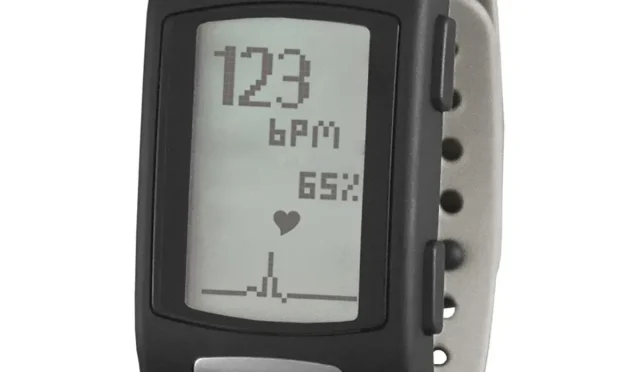Period Calculator: Easily Predict Your Next Cycle
When it comes to understanding your menstrual cycle, a period calculator can be an invaluable tool. With the ability to predict menstrual cycle dates, this online resource helps you stay informed about when your next period is likely to start. By inputting details about your previous periods and average cycle length, you can efficiently track periods and gain insights into your cycle’s patterns. Having this information can empower you to manage symptoms associated with your cycle, such as cramps or mood swings, with greater awareness. Whether your cycle is regular or you experience irregular periods, using a period calculator allows you to take charge of your reproductive health.
Understanding your menstrual rhythm can be simplified through an ovulation calendar or cycle tracking app. This tool not only helps in estimating your upcoming menstruation dates but also sheds light on your overall reproductive health. By analyzing data such as previous menstrual experiences and the average length of each cycle, you can better relate to your body’s signals. Additionally, if you’re facing challenges like unpredictable cycles, these apps provide a way to identify patterns and manage symptoms. With technology at your fingertips, keeping track of your menstrual journey is more accessible than ever.
Understanding Your Menstrual Cycle Length
The menstrual cycle, which is counted from the first day of menstruation to the day before the next period begins, typically lasts between 21 and 35 days. Knowing your average cycle length is crucial in predicting when your next period will occur. Factors influencing this length can include hormonal balances, lifestyle changes, and even stress levels. A consistent cycle length provides stability, but if you find your lengths fluctuating beyond this range, it may be wise to consult a healthcare professional.
Tracking your menstrual cycle length can be made easier with tools like Flo’s period calculator. This digital tool not only helps you pinpoint when your next period might start, but it also gives insights into the regularity of your cycles. By logging several cycles and the corresponding lengths, you can identify patterns and better predict your future periods, which can help in planning and personal well-being.
How to Use a Period Calculator Effectively
Using a period calculator is straightforward and can be incredibly beneficial for managing your menstrual health. Start by entering the date of your last period’s first day and your average cycle length, which may range between 21 to 35 days. The calculator will use this information to estimate when your next period is likely to begin. This predictive power can help you prepare for symptoms associated with your menstrual cycle, thus improving your overall experience.
Flo’s period calculator goes beyond just estimating cycle dates; it adapts and learns over time. By inputting your cycle data regularly, you can receive increasingly accurate predictions. Moreover, maintaining such records can assist in discussions with your healthcare provider about any irregularities, thereby allowing for a more tailored approach to menstrual health management.
Signs of Irregular Periods: When to Seek Help
An irregular period is often characterized by cycles that fall outside the typical 21 to 35-day range, such as cycles that are sporadic, excessively heavy, or absent altogether for more than a couple of months. If you notice these patterns, it’s essential to consult with a healthcare professional. Irregular periods can be indicative of underlying health issues such as polycystic ovary syndrome (PCOS), thyroid problems, or other hormonal imbalances.
While hormonal imbalances can be a common reason for irregular periods, lifestyle factors like extreme stress, significant weight changes, and certain medications can also play a role. Keeping track of your menstrual cycle with Flo can provide valuable insights into your body’s patterns and help you address these potential issues with your doctor.
Benefits of Tracking Your Menstrual Cycle
Tracking your menstrual cycle offers numerous advantages, including improved self-awareness and the ability to manage symptoms that may arise. Understanding your cycle can help you prepare for physical and emotional changes associated with your period, making the experience less disruptive. The Flo app allows for logging of symptoms, mood swings, and other personal experiences, giving you a holistic view of your menstrual health.
Additionally, having a reliable record of your cycles can facilitate better communication with healthcare providers. If irregularities or concerns arise, being able to provide your doctor with historical data can lead to more accurate diagnoses and treatment plans. Ultimately, cycle tracking empowers individuals to take charge of their reproductive health.
Menstrual Symptoms: Preparing for Your Cycle
Many individuals experience a range of symptoms leading up to or during their periods, including cramps, mood swings, fatigue, and even physical bloating. Understanding these symptoms can help you prepare mentally and physically for your cycle. Logging these symptoms within an app like Flo can help you recognize patterns over time, making it easier to anticipate what to expect each month.
Being aware of common symptoms associated with menstruation allows for better management strategies. For example, if you know you’re prone to severe cramps, you can plan for pain relief or adjust your schedule accordingly. Some users find adjusting diet and exercise habits around their cycles also helps alleviate some menstrual discomfort, which highlights the benefits of understanding your unique bodily rhythms.
How Stress Impacts Your Menstrual Cycle
Stress is a known disruptor of hormonal balance, which can impact your menstrual cycle significantly. High levels of stress can lead to delayed periods or even missed cycles altogether. Your body may prioritize responding to stressors over maintaining regular hormonal functions, which can disrupt your period’s regularity.
By tracking your cycle with Flo, you can correlate stress levels with cycle regularity. This information can be pivotal when discussing menstrual health with a doctor, as identifying lifestyle changes that may adversely affect your cycle allows for targeted interventions that can help restore regularity.
Using Flo for Personalized Cycle Insights
Flo not only acts as a period calculator but also personalizes your menstrual health journey through AI-driven insights. By logging your period dates and symptoms, the app learns your unique cycle patterns over time and adapts its predictions to become more accurate. This allows you to not only know when your period might start but also what pre-period symptoms to expect.
Furthermore, personalized insights help users make informed lifestyle choices that align better with their menstrual health needs. Whether it’s adjusting physical activities or dietary habits, having tailored recommendations can enhance overall well-being, making each cycle a more manageable experience.
Determining the Average Menstrual Cycle Length
The average menstrual cycle length falls typically around 28 days, though this can vary greatly among individuals. Normal cycles can range from 21 to 35 days, which is why understanding your unique cycle is important. Some women may experience shorter or longer cycles due to various factors, including hormonal changes, age, and health conditions.
By utilizing a period calculator, you can determine your specific cycle length, which can inform you if your cycle is within the average range. Regular tracking can help establish what is typical for you, and if your cycle length frequently falls outside the normal range, it may be time to consult a healthcare provider.
Dealing With Late Periods: Common Causes and Solutions
A late period can be concerning, especially if you’re expecting your cycle to start on time. Various factors can contribute to missed or delayed menstruation, including stress, significant changes in weight, or hormonal imbalances. If your period is consistently late, it’s essential to seek medical advice to rule out any underlying health concerns.
The Flo app can help you track your periods and symptoms, allowing you to notice any patterns in your menstrual cycle over time. By logging information related to late periods, you may be able to identify lifestyle factors or stressors that correlate with disruptions in your cycle, helping you make informed decisions about your health.
Frequently Asked Questions
What is a period calculator and how can it help track periods?
A period calculator is a tool designed to predict the start date of your next menstrual cycle based on the date of your last period and your average cycle length. By inputting this information, the calculator helps you track periods and understand your menstrual cycle better. It provides an estimate of when your next period might arrive, allowing you to prepare for it.
How can I use a period calculator to predict menstrual cycle dates?
To use a period calculator effectively, enter the date of the first day of your last period and your average cycle length. This information allows the calculator to estimate your next menstrual period date, helping you stay informed and prepared for upcoming cycles.
What factors can affect my average cycle length when using a period calculator?
Several factors can influence your average cycle length, including stress, changes in weight, lifestyle factors, and medical conditions like polycystic ovary syndrome (PCOS). Tracking these variables in a period calculator can provide clearer insights into your menstrual cycle’s regularity.
How do I know if my periods are irregular when using a period calculator?
Periods are considered irregular if they occur fewer than 21 days or more than 35 days apart, or if the cycle length varies by more than seven to nine days. If you input this data into your period calculator and notice significant discrepancies, it might indicate irregular periods that could warrant discussion with a healthcare provider.
Is it safe to rely on a period calculator for cycle predictions?
A period calculator offers estimations based on your menstrual cycle data. While it can be helpful for predicting your next period, it should not be used as a contraceptive method. For more accurate predictions, particularly if you need to manage contraceptive needs or anticipate pregnancy, consider consulting with a healthcare professional.
How do I track irregular periods effectively with a period calculator?
To track irregular periods effectively, log your cycle data into a period calculator regularly. The more data you input, the better the calculator can recognize patterns in your menstrual cycle. Using an app like Flo can also enhance your ability to understand the fluctuations in your cycle.
Can a period calculator help me identify my ovulation date?
Yes, many period calculators also provide estimates for ovulation dates based on your menstrual cycle data. By tracking when your last period started and your average cycle length, the calculator can help identify your fertile window, making it easier to understand your overall reproductive health.
What should I do if my period arrives later than predicted by the calculator?
If your period is late compared to the predictions made by the period calculator, it may not necessarily indicate a problem, but it could be a sign of factors like stress or changes in routine. If periods are consistently late or irregular, it’s advisable to consult a healthcare provider for personalized advice and possible evaluation.
What are the benefits of using a menstrual cycle calculator like Flo’s?
Using Flo’s menstrual cycle calculator helps you predict your next period, understand your menstrual cycle patterns, and customize notifications for symptoms. It also allows you to track LH surges for ovulation and can provide unique insights tailored to your cycle’s history and variations.
How accurate are predictions made by a period calculator?
Predictions made by a period calculator are generally based on averages and patterns from previous cycles. While they can provide a good estimate for your menstrual cycle, it’s essential to remember that many variables can affect cycle regularity, and individual results may vary.
| Key Point | Explanation |
|---|---|
| Prediction of Next Period | Flo’s period calculator uses your last period date and cycle length to predict your next period. |
| Understanding Cycle Lengths | A typical cycle lasts between 21 to 35 days, with periods averaging 2 to 7 days. |
| Irregular Periods | Cycles shorter than 21 days or longer than 35 days are considered irregular. |
| Symptoms Tracking | Logging symptoms can aid in understanding your cycle patterns. |
| Impact of External Factors | Stress, weight changes, and health conditions can affect cycle regularity. |
| Accuracy of Predictions | Calculations can vary due to personal factors, making them estimates. |
| Use of AI Technology | Flo’s use of AI improves accuracy over time with tracked cycles. |
Summary
The period calculator is a valuable tool for predicting your next menstrual cycle, making it easier to stay prepared. Utilizing the Flo app can enhance accuracy by learning from your previous cycles. Remember, while the calculator provides estimates, understanding your own body and any irregularities is crucial. Regular tracking ensures you’re in tune with your health, empowering you to manage your menstrual cycle effectively.
#PeriodCalculator #MenstrualCycle #CycleTracker #WomenHealth #HealthTech








